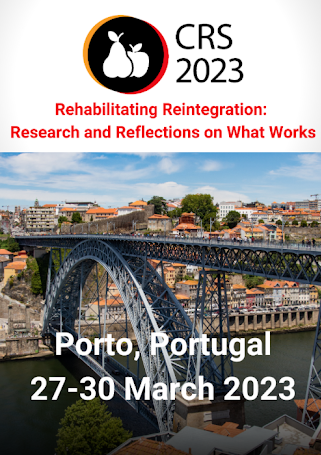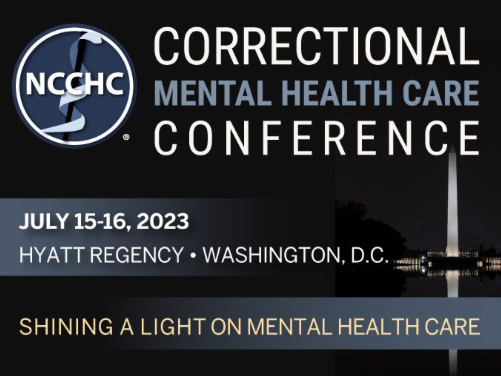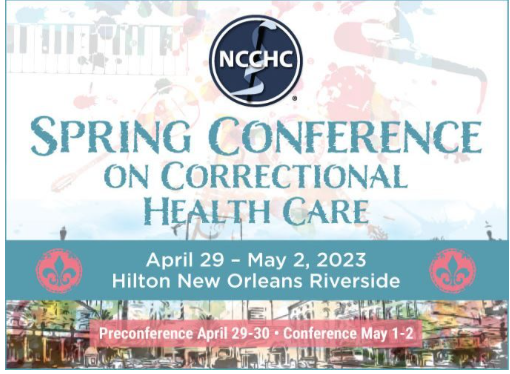
We've compiled top highlights from recent research, policy, and practice resources across the world for our latest IACFP International News summary. Our topics for January and February, 2023 include IACFP updates, recent research, emerging practices, and upcoming conferences.
1. IACFP Update
- The IACFP Board met on 17 January 2023. At that time, they adopted a budget for 2023 that supports the priorities noted in the last issue of the IACFP Bulletin. Those areas of strategic focus are:
- International Strategy
- Professional Education and Support
- Community Corrections
- Funding for projects includes some financial support for the 2nd in-person meeting of the IACFP International Correctional Mental Health Leadership Network in Gent, Belgium; sponsorship of the Correctional Research Symposium 2023 and N5, as well as the IACFP Distinguished Scholar at the ICPA Conference; webinars in partnership with other professional organizations, as well as those produced by IACFP; and wide distribution of Mental Health in Community Corrections: International Perspectives.
- IACFP will not only be a sponsor of the upcoming Correctional Research Symposium 2023 but also will have board members and the executive director present as part of the symposium. The closing keynote will have Dr. Emma Regan, IACFP President-Elect and Head of Psychological Services of the Irish Prison Service, facilitating a presentation on “Lived Experience Perspectives on Rehabilitating Reintegration." Cherie Townsend, Executive Director, and Diane Williams, IACFP Treasurer, will be participating with Charlie Brooker in a workshop entitled “Research and Reflections on What Works for Those with Mental Health Needs.” Dr. Frank Porporino, IACFP Past President, is a member of the CRS 2023 Program Committee and will also participate in the Symposium.
- IACFP has entered into an agreement with Higher Logic to update the member experience at www.myiacfp.org. The expectation is that this will improve the process for membership renewals, add communities of practice, and provide support for the delivery of professional development. Phase 1 of these improvements will take place in the first quarter of the year.
2. Research
- Criminological Highlights, Vol. 20, No.3 - October 2022
In the last issue of the IACFP Bulletin, we shared Criminological Highlights, Vol. 20, No.3 - October 2022. One of the articles that it summarized was intended to answer the question:
What are the dangers in relying on “professional assessments” for parole decisions?
This summarized an article written by Kathryne M. Young and Jessica Pearlman, titled “Racial Disparities in Lifer Parole Outcomes: The Hidden Role of Professional Evaluations.” Law & Social Inquiry, 47(3), 783-820. The conclusion in Criminological Highlights was:
“Black applicants for parole may not only be seen as more 'criminal' than White applicants, but they may also be seen as less truly rehabilitated by those running the prisons, psychologists who assess them, and prosecutors. ‘Nearly half of the racial inequality [of parole application outcomes] is associated with parole commissioners’ reliance on prior professional assessments’ (p. 808). The problem is that 'highly subjective judgements, such as psychiatric reports and disciplinary infractions, become part of the official record…. Every file contains exercises of discretion [that are described] as ‘facts.’ If a prison guard believes someone is disrespectful and gives him a citation, that parole candidate ‘has’ [a citation]” (p. 809). This 'fact' then affects the prisoner’s freedom.”
- Additional Information
We received a response from IACFP member, Cliff Kusaj, Psy.D., Chief Psychologist of California’s Board of Parole Hearings, that provided additional information and a perspective that he has previously shared with the authors of this article.
Dr. Kusaj wrote, “What I hope isn’t lost on the (IACFP Bulletin) reader is that our use of structured risk assessment and professional judgment contributed to our safely releasing more indeterminately sentenced (Life-term), incarcerated people last year (1,421) than it did in the two decades prior to our implementation of forensic psychologists’ assessments (1,255 parole grants between 1987 and 2006). Parole decision-makers should rely on professional assessments more and not less as it is our assessments that convey objective and balanced pictures of the people coming before them.
Use of structured risk assessment in a parole release context is unfairly criticized and, unfortunately, our contribution to effective and responsible decision-making is frequently underappreciated. The question for policy makers is, ‘at what point do risks become intolerable or unreasonable?’ and this is where I think like minds might disagree. From my perspective, our goal is to release as many incarcerated people as safely as possible, keeping in mind that most were convicted of first and second degree murder and/or very serious sexual offenses. Our ability to release over fourteen hundred individuals with no observed increase in recidivism provides a model others might wish to emulate.”
He also provided the following information that may be of interest to readers:- "Young and Pearlman’s (2021) finding of racial disparities in parole outcomes is inconsistent with the analysis of California’s Committee on the Revision of the Penal Code, also published in late 2021 (e.g., Black people with a recent disciplinary violation were more likely than White people to be granted parole).
- Grant Rates by Race and Ethnicity: The Board of Parole Hearings provided the California Committee on Revision of the Penal Code with outcome data for the 3,400 hearings held in Fiscal Year 2019-20. The data included each incarcerated person’s race and ethnicity, as well as information concerning the person’s recent disciplinary violations, if any. The study found the following:
'Unlike the other parts of the criminal legal system, in the one-year sample of parole hearings discussed here . . . parole grant rates across racial groups showed little disparities: White people were granted parole at a rate of 36%, Black people at 34%, and Latinx people at 34% . . . The differences in grant rates changed slightly when examining who was granted parole by the number of [relatively recent] disciplinary violations they had at the time of their hearing. White people with no disciplinary violations were granted parole 43% of the time, Black people 47%, and Latinx people 45%. With one recent disciplinary violation, White people were granted parole 16% of the time, Black people 20%, and Latinx people 14%.
The small disparities across these three groups are not statistically significantly different from zero. That is to say, the patterns observed for the time period analyzed are consistent with the hypothesis that there are no overall racial disparities for these three groups in grant rates for those who go through parole hearings.' - Annual Report and Recommendations, Committee on Revision of the Penal Code, p. 61 (http://www.clrc.ca.gov/CRPC/Pub/Reports/CRPC_AR2021.pdf): Because the Committee found no differences in parole outcomes, there’s little reason to conclude that our risk assessments contribute to racial disparities that seemingly do not exist. Arguably, our structured professional judgment and non-algorithmic approach to risk assessment, because it does not contain proxy indicators of race (e.g., failure to complete high school) in the same way an actuarial instrument might and because Board psychologists do not administer risk assessments in an adversarial allegiance context, help to buffer against racial biases and other influences. While structured professional judgment does not eliminate the potential for examiner biases, each of our reports is reviewed by a supervising senior psychologist and this serves as an additional check-and-balance on the integrity of assessments.”
- Criminological Highlights Vol. 20, No. 4 - January 2023
The current issue of Criminological Highlights Vol. 20, No. 4 - January 2023 can be viewed as a PDF at Criminological Highlights Volume 20 No. 4
This issue of Criminological Highlights addresses the following questions:
- What are the risks when financial obligations are imposed on people who have been found guilty?
- When does the supervision of people on probation become counter-productive?
- Are prisoners suffering mental illness targeted for placement in solitary confinement?
- How can the impact of victimization on feelings of being unsafe be reduced?
- How do housing policies contribute to crime?
- Does “neighbourhood policing” affect crime and how the police respond to it?
- What concerns need to be addressed when thinking about implementing a program that has been “proven effective” in some other community?
- What happens to refugees in a country after there is a terrorist attack?
- Penal Reform International Newsletter Report: Non-custodial sanctions and measure in the member states of the European Union: A comparative study
Here is the link to the most recent Penal Reform International newsletter. The newsletter spotlights a recent report entitled, “Non-custodial sanctions and measures in the member states of the European Union: A comparative study.” PRI states: "To advocate for and realise the importance and benefits of real, effective alternatives to imprisonment as keys to reducing overreliance on prisons and delivering fair and proportionate criminal justice for all, it is important to understand how non-custodial sanctions and measures are currently used.”
This comparative research on the use and implementation of non-custodial sanctions and measures in European Union member states was completed as part of the project Promoting non-discriminatory alternatives to imprisonment across Europe, implemented through PRI’s Europe programme in partnership with the University of Coimbra, Portugal (UC) and the Hungarian Helsinki Committee (HHC), with funding from the European Union’s Justice programme (JUST-JCOO-AG-2020).
Also found on the PRI website is an excellent blog written by Charlie Brooker regarding the role of probation in mental health support, specifically in Europe. The blog is a call to move from research and reports to concrete and practical action. The blog can be accessed here.
3. Practice
- EuroPris
The January 2023 EuroPris newsletter can be found here. Of particular interest to readers of the IACFP Bulletin will be an interview with Dr. Ioana-Mihaela MOROR, Director of Social Reintegration Directorate, Romanian National Administration of Penitentiaries, and EuroPris Board Member. Her emphasis on treatment and rehabilitation is significant.
4. Upcoming Conferences
- Correctional Research Symposium (CRS), 27-30 March, 2023
EuroPris and ICPA, in collaboration with the Portuguese Reintegration and Prison Service, will organize in Porto, Portugal the 3rd annual International Correctional Research Symposium (CRS) on the theme: Rehabilitating Reintegration: Research and Reflections on What Works. Additional information can be found here.

- NCCHC Spring Conference on Correctional Health Care, April 29-May 2, 2023 & NCCHC Correctional Mental Health Care Conference, July 15-16, 2023
For additional information on these NCCHC Conferences, click here.



